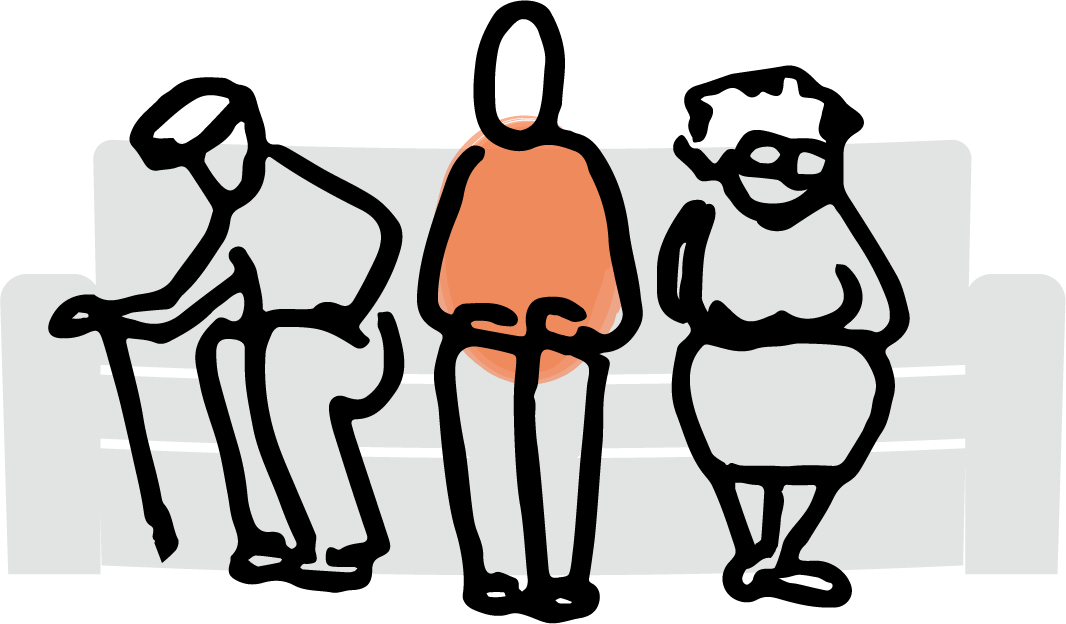The Secret to Confident Care Decisions
How to focus on what matters most.
By Diane Dagefoerde
How do you know if you’re helping mom or dad make the right decisions? And can you find a balance between what’s in their best interest and yours?
In today’s guest post, Diane Dagefoerde shares a remarkably simple method to help you make the right call when things get tough.
Thanks for caring,

Let’s face it: As caregivers, there are some decisions we tend to put off.
We dread having “the conversation” with mom or dad because we assume they’ll react badly. We need to research the issue, but the learning curve seems steep. We get busy with work or family and don’t have time to deal with it.
Once we finally decide to move forward, we run into other obstacles, such as having to choose the “least bad” option out of similarly unattractive choices, or navigating sibling conflict over which approach is the “right” one.
We end up feeling stressed because we know the more we delay making a decision, the worse the situation will become.
But it doesn’t have to be that way.
Here’s a simple decision framework that will help you make every care decision quickly and confidently. The key is to focus on your parent’s quality of life (QoL) — and yours.
What is Quality of Life?
While there is no unified definition, most agree that QoL has to do with life satisfaction and overall well-being.
QoL is unique for each person. What constitutes QoL for you isn’t the same for your mom or dad. And it tends to fluctuate over time. What was important to mom three years ago may not be the same — or expressed the same way — today.
Here are two questions to help you start talking with your parents about the quality-of-life issues that matter to them:
- What are the simple pleasures of life you look forward to every day, every year, and every so often? Seeing the grandchildren? Eating your favorite ice cream? Rubbing your dog’s belly?
- What are the unfortunate realities of life that are the most frustrating or embarrassing and would be the most helpful to consider? Limited mobility? Incontinence? Memory loss?
What Are Your Parent’s Top Five Non- Negotiables?
Quality of life is a big topic. That’s why it’s important to identify your parent’s Top Five QoL non-negotiables — the simple things they need to have a life worth living.
These things are non-negotiable because your parent has made it clear that they are essential to their quality of life and you have agreed to honor their priorities.
How do you help your parent choose their Top Five? In addition to asking the questions above, make note of your own observations. When do they seem most energetic and engaged? Who makes them feel that way? When are they most agitated? What are they afraid of?
Discuss your notes with your parent and family members and anyone who cares for your parent, like a longtime home healthcare aid. Then work with mom or dad to pick the Top Five that are most important to them.
My mother’s Top Five non-negotiables looked like this:
- Having her own private space
- Taking daily walks outdoors
- Starting the day with the morning newspaper and ending it with ice cream before bed
- Spending time with family
- Not being a burden on her children (or others)
Your Quality of Life is Important, Too!
What commitments have you made to yourself and others? How do these commitments translate into balancing work and family responsibilities, the level of support you need, and where you draw the caregiving line?
Your quality of life is important, which is why you also need a list of your Top Five non-negotiables.
Here are my Top Five:
- Mom not living with me
- Enjoying small pleasures with mom every time we’re together
- Balancing caregiving with my work and home life
- Making care decisions as proactively as possible
- Getting help from others as often as possible
How to Use QoL to Make Decisions
Applying the QoL framework is simple: For every decision you need to make, evaluate your options against your parent’s Top Five criteria first, then see if the resulting choice aligns with your Top Five.
For example, here’s how I used the framework to decide where to move my mom into assisted living:
At the time, I lived in Ohio and for 12 years mom was in independent living at a retirement community in Florida. Her dementia had reached a point that made living independently too difficult. My husband and I were traveling to Florida every six to eight weeks to help her.
We had two choices:
- Move mom to assisted living at her facility in Florida (easier transition; near friends); or
- Move mom to assisted living in Ohio (much harder transition; near family).
At first, Florida seemed like the logical choice. We’d already toured the facility at the retirement community with mom multiple times and put her on the waitlist for the next available unit. I had a good relationship with the facility director and team. And it was significantly cheaper than the facility in Ohio because she and dad had paid the hefty entrance fee when they moved in.
But everything changed when we applied the QoL framework. That’s when we discovered the Florida facility only met three of mom’s Top Five criteria and two of mine. The Ohio facility met all five criteria for both of us.
It was a no-brainer: We moved her to Ohio.
What Matters Most
Of course, there are always multiple factors to consider when making a decision, such as affordability, health outcomes, and logistical issues.
But using QoL to evaluate and guide care decisions is a game changer.
The QoL framework can help you choose when to compromise, when to stand your ground, and how to decide which option is better for mom. It can also reveal possible solutions you had not even considered.
Knowing your dad’s Top Five QoL priorities allows you to advocate effectively with all of his healthcare and professional service providers.
Top Fives can reduce family conflict by shifting focus from what family members want to what is most important to mom or dad.
Finally, knowing your parent’s and your Top Five is the foundation of an effective and efficient caregiving system that allows you to make care decisions with confidence by focusing on what matters most.
For More:
- What Contributes to a Good Quality of Life? (Pew Research) Scroll down.
- Where People Around the World Find Meaning in Life? (Pew Research)
Diane Dagefoerde is a former Information Technology executive who juggled caring for her parents with a demanding job for over 15 years. Along the way, she developed tools, templates, and processes that help busy people manage care without sacrificing quality of life.
The resulting QoL Caregiving System is a step-by-step guide to creating order from the chaos, caring for your parent, minimizing family conflict, and getting your life back. Read more about it in her book: Managing Elder Care from Afar: A Practical Guide for Busy People.
New to My Aging Parents?
Join us for practical tips and strategies to help you meet the challenges of helping your aging parents. Hand picked and delivered by email biweekly.
No charge. No spam. Unsubscribe anytime.
